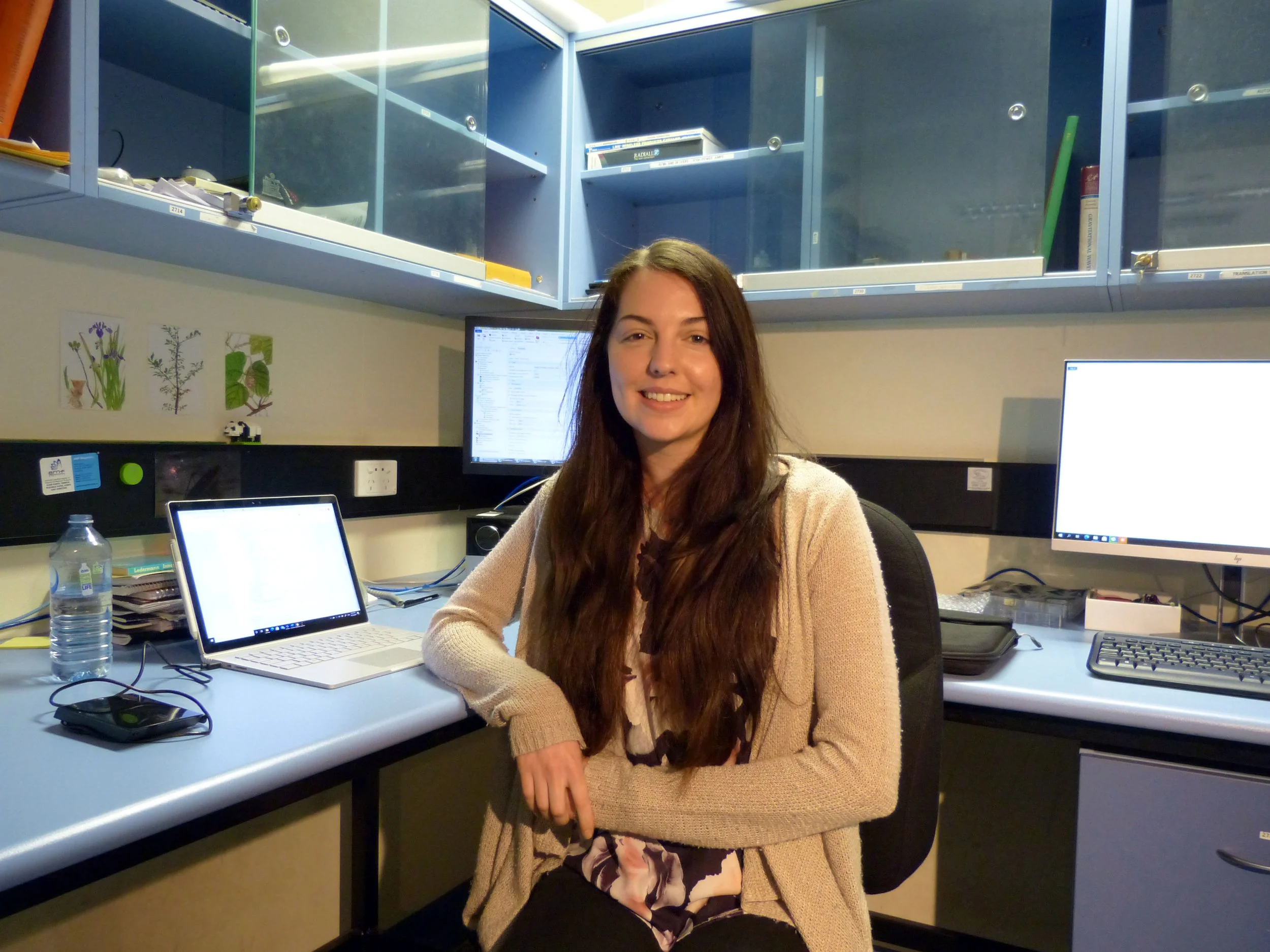Elrina Hartman
From the moment Elrina Hartman was introduced to quarks and leptons, and colour charge, she knew physics was for her.
Physics is a broad field and can sometimes look like lonely work, but PhD student Elrina Hartman says the dynamism and collaboration within the field of physics confirmed her desire to pursue the sciences.
PhD student at The University of Western Australia (UWA) and working with EQUS and CDM under the supervision of CI Mike Tobar, Elrina Hartman has always had a keen interest in the sciences.
"I did all the chemistry, physics, and biology in school and then came to UWA to do my undergrad with a bachelor's degree in science doing physics and chemistry."
But it was in her second year that Elrina centred on physics: "We learnt about particle physics and just hearing about quarks and leptons, and something called 'colour charge,' I felt my brain light up, and then I decided that that's what I wanted to focus on."
Understanding the principles of physics is one thing, but the realisation of how many people are needed to conduct an experiment, the immense collaboration of scientific discovery, is what Elrina was truly inspired by.
"In my third year, I went to a Hadron Collider Summer School in Germany. There were guest speakers who spoke about the various experiments running at CERN.
They described the different aspects and skills needed to work on the Collider, and that's when I realised how rich particle physics is. So many fields of expertise go into making one experiment happen, and so many people are involved from different disciplines. It's very dynamic, and that's what appeals to me."
This collaborative approach builds a strong community, which keeps Elrina inspired and motivated as she pursues her career in the sciences.
"The people here are very good at what they do, so it's really nice to have exposure and learn from them. I get taught so much from the postdocs that are here. I love working with physicists and scientists because they're all the same curious people, and we can connect over that need to find something greater. It's hard to express that to people who aren't into the sciences. In more conventional jobs, there is often a disconnect in terms of what people prioritise in their lives, but in this community, we see that and can share the same needs to discover and understand something more."
The discovery of dark matter fuels scientists from multiple backgrounds worldwide, testing their theories, experiments and sometimes their patience. With few experiments offering tangible insight into dark matter, Elrina has learned to embrace failure and be inspired by it – to not dwell on what 'doesn't work', but ask 'what next?'
Elrina admits that working on a theory on dark matter that doesn't materialise "can be a frustrating failure" but it is a frustration you learn to take in your stride.
"It's something you have to embrace when you're working in a field where there are so many unknowns, and there's so much trial and error. Each failure teaches you something about your experiment and how to improve it. So, you learn not to be deterred by the outcome, but to look at the experience, assess the problem and then move on - be creative with your [perceived] limitations."
These lessons in perseverance and resilience have moved beyond the labs and into Elrina's personal life, "So much of physics transfers to other areas of my life. It can often act as a metaphor, helping to put a lot of life's problems into perspective. You can get so caught up in your own little world, but then you're confronted with these big questions beyond you as an individual, and you know you're only making a very small contribution to it. It makes it difficult to dwell on smaller inconveniences in your life. It's a humbling experience learning this stuff."
Elrina advises those considering a career in particle physics and encourages more people to give it a go.
"Don't be deterred by how much there is," she implores. "It's easy to feel like you might not be good enough, smart enough or have the necessary background, but you're not going to get any of those things until you experience the process and the inevitable frustrations. It is fun and so different from anything else you'll experience. Don't be afraid to try. There are loads of options, and not every bit of it will fit your niche, your skillset or interest you, but you will find something. If you're interested in physics, you'll find something."
Elrina's passion for the process, strength in the setbacks, curiosity for the greater questions, and love of collaboration have her set on a vibrant scientific career. As she continues her study and work with UWA and the QDM Labs, she hopes to inspire those curious about science to join the community and broaden our scientific knowledge.

